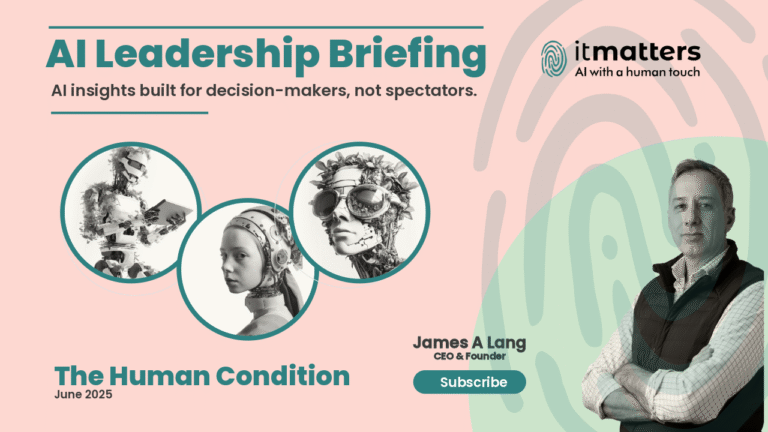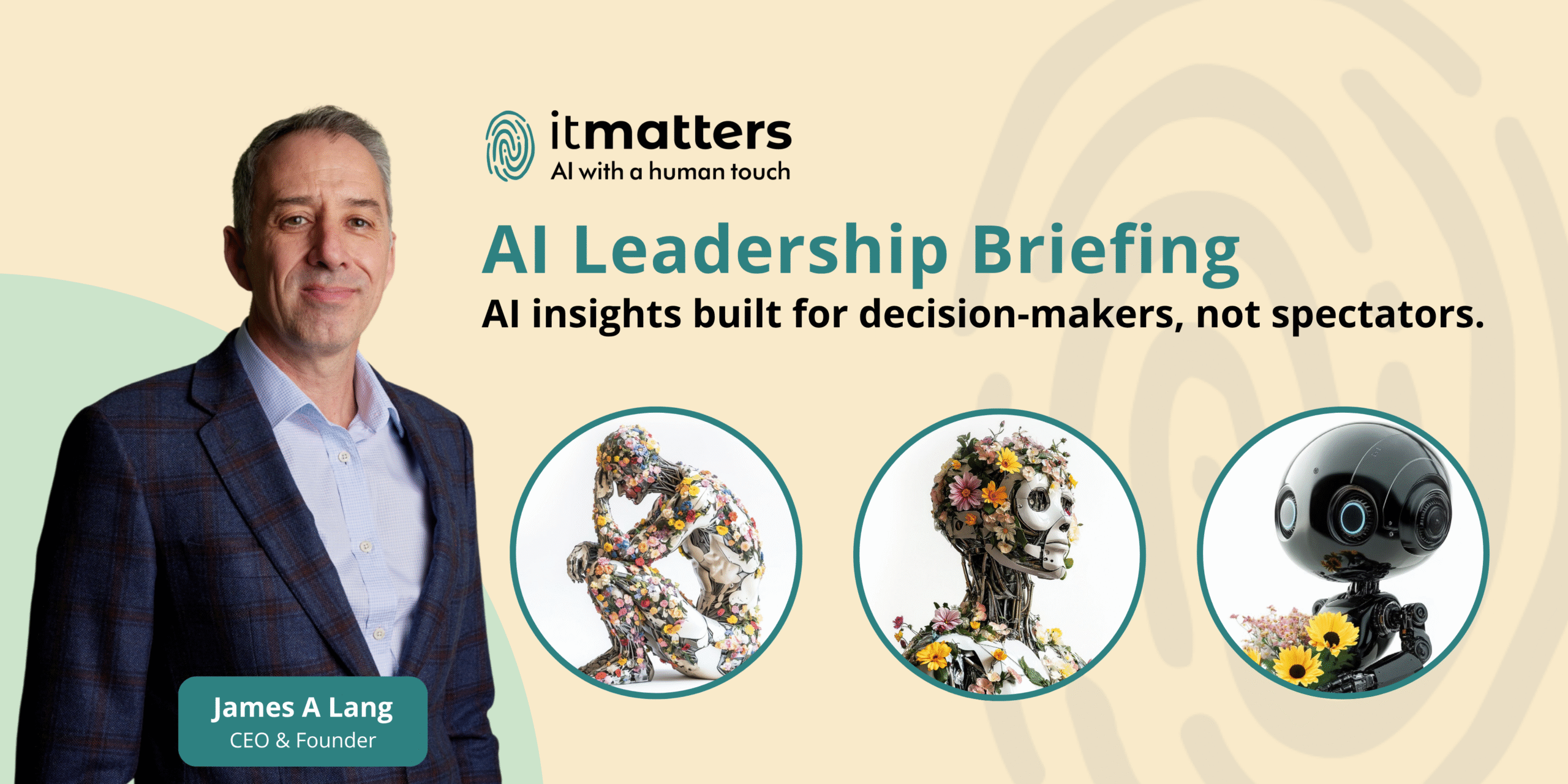Here is the Monday 9 June 2025 edition of The itmatters AI Leadership Briefing, launching Week 2 – Synthetic Empathy in The Human Condition series.
The itmatters AI Leadership Briefing
AI insights built for decision-makers – not spectators.
Series: The Human Condition – Week 2: Synthetic Empathy
Edition Date: Monday 9 June 2025
The Empathy Engine – When AI Talks Like It Feels
Empathy—the trait once exclusive to human relationships—is now being trained, packaged, and deployed at scale.
From chatbots that apologize with warmth to AI coaches that mirror concern, emotional intelligence has become an AI feature, not a leadership trait.
We’re entering an age where machines are designed to sound like they care, even when they can’t.
But when care becomes code, the outcomes aren’t emotionally neutral – they’re strategically designed.
Reflective Human Insight
Empathy isn’t just a tone. It’s risk, vulnerability, and responsibility.
If AI can perform empathy without embodying any of those things— Are we building tools of support or simulations of concern?
Today’s Tactical Signals
1. Salesforce Launches “Emotion-Aware Service Cloud”
Salesforce’s new update integrates emotional tone detection into customer interactions, prompting agents and bots to shift tone based on detected frustration, sadness, or urgency.
Why it matters: Empathy as UX is powerful – but without real accountability, it can be used to manage sentiment, not solve problems.
(Salesforce, 2025)
2. Google DeepMind Debuts “Care Coach” Prototype
A health assistant trained to detect patient distress through voice and language analysis has begun early trials in aged care facilities. It is designed to offer soothing responses and alert staff if needed.
Why it matters: Emotional triage can save lives – but only if it augments, not replaces, human presence.
(DeepMind, 2025)
3. Hugging Face Releases “EmpathGPT”
This open-source model is fine-tuned for emotionally supportive dialogue and is already being used in mental wellness apps, peer coaching bots, and education platforms.
Why it matters: Empathy is now a model card. And when it’s open-source, it can be used to care – or to manipulate.
(Hugging Face, 2025)
4. Shopify Pilots Empathy Layer for SMB Customer Service
Shopify has begun offering small businesses a plug-in that adds AI-generated emotional intelligence to their chatbot experiences, promising “compassionate commerce at scale.”
Why it matters: This is AI for small business at its most seductive – easy to deploy, hard to monitor. Human-centered AI must still be grounded in values, not just tone.
(Shopify Labs, 2025)
5. UCL Study Finds Synthetic Empathy Increases Trust – Temporarily
A behavioural study from University College London shows that while emotionally intelligent AI increases user trust in the short term, it can reduce long-term satisfaction when outcomes feel scripted.
Why it matters: If trust is earned by tone but betrayed by result, AI-powered decision making becomes emotional manipulation.
(UCL Centre for AI and Society, 2025)
Field Note from the Future
It is 2027. A healthcare chatbot comforts a teenager in crisis.
It says all the right things – calm, supportive, perfectly timed. But when her condition worsens, no one is there.
The system wasn’t built to care – just to sound like it did.
Why it matters for leaders:
Synthetic empathy without real escalation or follow-through is emotional design without responsibility.
Summary (Leadership Action)
Synthetic empathy is here – and it works.
But leaders must ask:
Are we building emotional architecture, or performance layers?
Empathy is not a plugin. It’s a responsibility.
Leadership Quote
“People will forget what you said, forget what you did, but never forget how you made them feel.”
– Maya Angelou
Orders of the Day
Subscribe to the newsletter to stay ahead of the AI curve.
itmatters brings you the clarity, context, and credibility needed to lead in a shifting world.
Tomorrow’s Preview
Emotion as Interface – When feelings become UI, are we designing for trust or for control?



